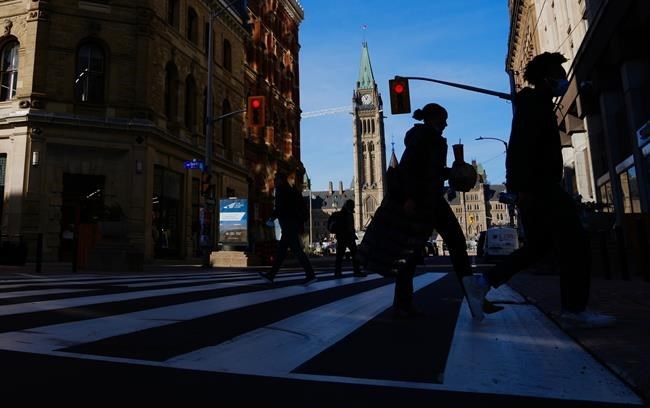More than 120,000 federal public servants voted in favour of a countrywide strike mandate this week — and their union has made clear that wages are top of mind as it mulls whether to launch the potential job action. Another 35,000 from the Canada Revenue Agency voted for a strike mandate last week.
The Public Service Alliance of Canada and the federal government have been at the bargaining table since June 2021. After a protracted impasse, during which both parties filed labour complaints against each other, the two began mediated negotiations early this month.
The union's demands have shifted over time, and neither party says it is willing to discuss the details of the ongoing negotiations publicly. It is also a standard bargaining tactic for parties to ask for more, or offer less, than they are expecting in the completed agreement.
But a brief to the Public Interest Commission last November sheds light on what the union was asking for at that time. Here are some of the items that were on the table.
Wage increases: The union said it wants to see a 4.5 per cent wage increase every year for the next three years, due to inflation and the rising cost of living, amounting to a 13.5 per cent total increase. The Treasury Board has reached several wage increase agreements with other agencies in the last year. For example, the Canadian Armed Forces will see a compounded increase of 10.4 per cent over the next four years and the Association of Canadian Financial Officers will see a salary increase of 11 per cent over four years.
Indigenous language allowance: Employees who use an Indigenous language in the workplace would be paid an annual allowance of $1,500, if the public service alliance gets its way. In August, The Canadian Press reported that the Treasury Board said it had no plans to expand a bonus that is paid to employees who speak both official languages to those who know either English or French plus an Indigenous language. The bilingualism bonus currently amounts to an additional $800 per year.
Additional pay for case managers at Veterans Affairs: The union argues that case managers should receive a $2,000 annual allowance. It says the job requires "distinct skills and effort," and due to the nature of the job liaising with veterans who may have experienced trauma during their military service, many workers are at risk of mental injury and overall strain.
Shift and weekend premiums: Employees working any time between 4 p.m. and 8 a.m. or on weekends would receive an additional $2.50 per hour for all hours worked, including overtime, under one union proposal. The union says employees have not seen an increase in shift premiums since 2002, and their value has been eroded by inflation.
Paid double for overtime: The union wants employees who are working more than 7.5 hours to be paid double for their overtime. Workers currently get 50 per cent more pay for overtime.
Leave with pay: The union is looking to increase leave with pay from 37.5 hours to 45 hours for family-related responsibilities. According to the Canadian Taxpayers Federation, the union was looking to increase the number to 75 hours in earlier negotiations but reduced it to 45 hours.
This report by The Canadian Press was first published April 14, 2023.
———
This story was produced with the financial assistance of the Meta and Canadian Press News Fellowship.
Cindy Tran, The Canadian Press


